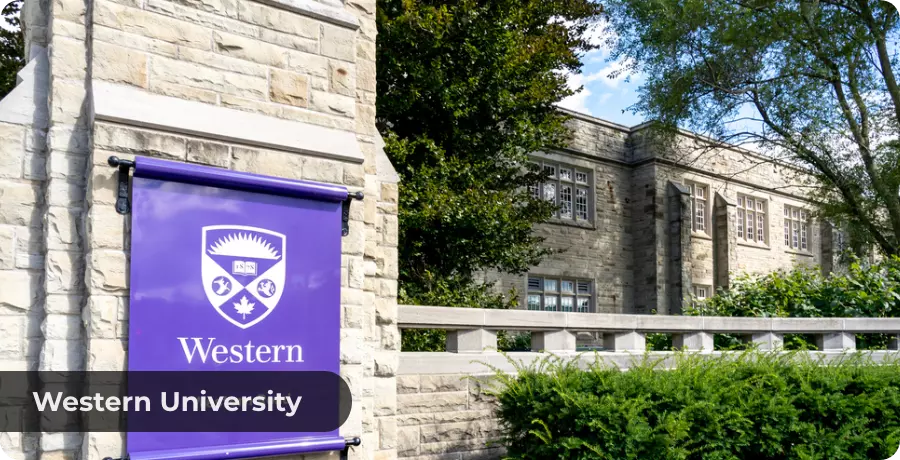For Indian students planning to study abroad, CO-OP programs are a great way to balance their finances and work while they pursue their academic studies. This article guides students about CO-OP programs in Canada, the application process, and its benefits. Keep reading to know more.
What are CO-OP programs in Canada, and how do they operate?
For Indian students planning to study in Canada, CO-OP programs are a great choice since they offer students an experience in the real world, along with continuing their studies simultaneously. CO-OP programs, short for cooperative education programs, are educational programs in Canada exclusively designed for students who want to integrate academic studies with hands-on work experience.
These courses are specifically designed for undergraduate and postgraduate aspirants looking for job opportunities alongside study in Canada for international students. It is a fantastic way to earn while you learn and gain valuable experience in a career you're interested in.
Joining a CO-OP program in Canada would require joining a company related to your field of study. Usually, every Canadian university has partnerships with organizations and companies willing to place students as a part of CO-OP programs. CO-OP programs help candidates make money and offer valuable connections that will help students explore job opportunities after a master's in Canada.
The placements begin in the second year of college, and the study and the work period alter every four months.
Eligibility criteria to be fulfilled to take up Co-Op in Canada
As per the Canadian government, international students can be enrolled in CO-OP programs, provided that they fulfill some eligibility requirements.
To be able to take up CO-OP programs, students must be enrolled in a Canadian university that offers CO-OP programs as a part of their curriculum and choose their desired program. Additionally, every international student must gain a CO-OP work permit/visa to work in the country.
The eligibility requirements for it are as follows:
● A valid study permit must be with the student.
● Aspirants must be enrolled in a CO-OP program in a recognized Canadian university.
● Students must choose English or French as their second language.
● The program chosen by the student should be a DLI and provide a degree or diploma at the end of the course.
● The work duration for co-op placement must not exceed 50% of the total study program.
● Students must also have an acceptance letter stating that work experience is required to finish the degree.
Top Universities in Canada for Co-op Courses
Canada is home to excellent universities that provide top CO-OP courses around the globe. Besides academic excellence, Canadian universities also offer valuable work-integrated learning experiences to shape a better career for every student. Below are some of the top universities in Canada that offer excellent CO-OP programs.
University of British Columbia: With a strong commitment to fostering real-world skills and career readiness, the UBC is one of the most well-reputed institutions in Canada. The university is ranked #47 by QS World Rankings in 2023 and offers its students the unique opportunity to integrate hands-on work experience and academic studies.
The University of Waterloo: With one of the largest CO-OP programs worldwide, this university is renowned for its extensive opportunity in diverse fields, from engineering to computer science to business.
Simon Fraser University: Another brilliant institution, Simon Fraser University embodies one of Canada's most prestigious cooperative education courses. The university was ranked #328 in British Columbia as per QS World Rankings, 2023.
University of Victoria: Located in beautiful British Columbia, this university aims to commit students to experiential learning, along with a wealth of practical experience, to help open job opportunities after a master's in Canada. According to QS World Rankings 2023, the university was ranked #359 overall.
Some other prestigious universities in Canada that offer excellent CO-OP programs include:
● University of Ottawa
● University of Alberta
● Dalhousie University
● Ryerson University
● Concordia University
● Carleton University
● University of Quebec
● Centennial College
● Wilfrid Laurier University
How to apply for a CO-OP program in Canada?
Applying for the CO-OP program as an international student can be time-consuming. Students must follow the steps mentioned below to be able to work as a CO-OP candidate in the country.
Research for CO-OP Programs in Canada: Researching is the foremost step students must follow during their application process. Aspirants should begin by looking for recognized universities offering CO-OP programs in their field of study.
Additionally, students must look for reviews online and consider feedback from known alumni while finalizing their choices.
Meet the Necessary Admission Requirements: The next step would be to ensure you meet all admission requirements to get admitted into the program of your choice. This typically involves passing an English proficiency test, academic qualifications, letters of recommendation, college essays, etc.
Prepare Required Documents: Students must keep all the necessary documents handy after getting admitted into their desired institution. Usually, documents that are required for enrollment include:
● Passport
● Passport Sized Photographs
● Transcripts
● Proof of Financial Resources
● Study Visa
● Health Insurance
● High School Diploma Marksheet
● Letters of Recommendation
● Proof of Language Proficiency
● Statement(s) of Purpose
● Proof of Canada PR after study (if applicable)
Reasons to Choose a Co-Op Program
A CO-OP will offer Indian students the chance to gain practical knowledge in their field of study with the help of real-time work experience. It will help them apply theoretical knowledge to real-world situations, and students will also gain the opportunity to build industry connections with potential future employers.
A CO-OP degree will also foster faster skill development and expose students to diverse job roles and industries. This will help them make careful and better decisions after graduating from college.
Major benefits of choosing a CO-OP program in Canada
A CO-OP degree has fascinating benefits for students, some of which are stated below.
● Graduates with a cooperative education degree have an edge over those with ordinary degrees regarding employability.
● A CO-OP degree comes with financial support, which is necessary for international students trying to study abroad.
● Aiding theoretical knowledge with practical work experience can help boost an aspirant's resume, thus offering job placement assistance.
● Additionally, CO-OP programs help students build positive and strong connections within their industry.












